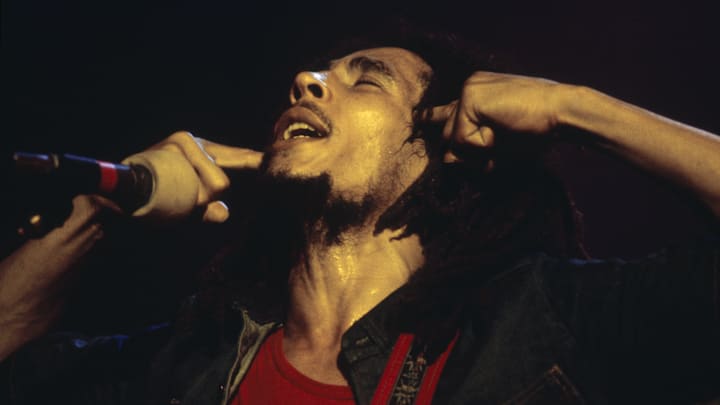"Get Up, Stand Up" (1973)
One of Marley's better-known songs, the track went through several iterations before being a part of the album, Burnin'. This included trying to work through the song before they opened for Bruce Springsteen in 1973 at a New York club. This track also differs from many other Wailers tunes because Marley wrote the song with Peter Tosh instead of creating songs separately and Tosh hoped his songs would find a way to the album.
To be fair, Tosh's vocals on the track might be the strongest. While Marley was a better singer and was better with phrasing, Tosh's directness fit the song perfectly. But the words of this tune might be among the best for a person's cry to simply survive. With a phrase taken from Abraham Lincoln, this stanza is clear and powerful: "You can fool some people sometimes/But you can't fool all the people all the time/So now we see the light (watch you gon' do?)/We gonna stand up for our rights (yeah, yeah)."
"Redemption Song" (1980)
The instrumentation on this track is the simplest of any other on this list, but the words and vocal arrangement might be the most powerful. Written by Marley after he learned he would likely die from cancer, the strength he summons to come up with a song like this is something few artists could ever truly dream of doing. The track blooms with hope from oppression and any kind of pain.
But this was no off-the-cuff track. Marley worked on the exact chords and lyrics for a year and the lyrics are partly borrowed from activist Marcus Garvey, such as "emancipate yourself from mental slavery." The way Marley sings, "How long shall they kill our prophets while we stand aside and look," is not for the faint of heart. Marley lived every word he wrote, and the world is better off for that.
